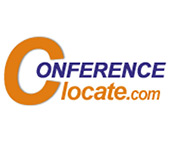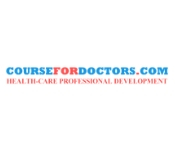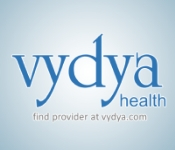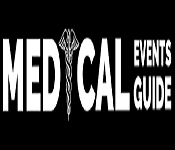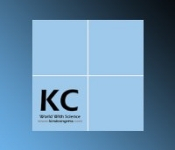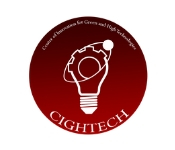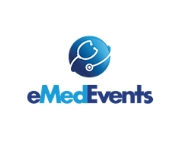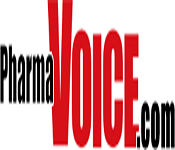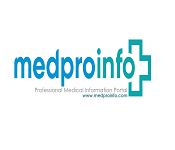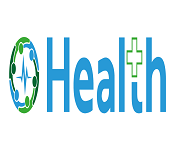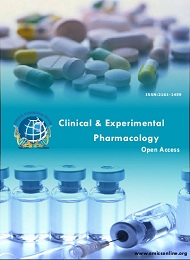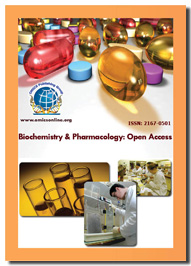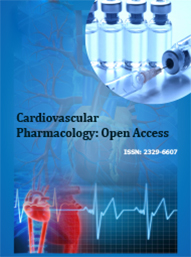Theme: Accelerations and Decelerations in Drug Discovery
Pharmacology Congress 2019
Conference Series llc Ltd is a renowned organization that organizes highly notable pharmaceutical conferences throughout the globe. Currently we are bringing “14th World Congress on Pharmacology and Toxicology” (Pharmacology Congress 2019) scheduled to be held during September 11-12, 2019 at Singapore. The conference invites all the participants across the globe to attend and share their insights and convey recent developments in the field of Pharmacology and Toxicology.
Conference Series llc Ltd organizes a conference series of 3000+ Global Events inclusive of 1000+ Conferences, 500+ Upcoming and Previous Symposiums and Workshops in USA, Europe & Asia with support from 1000 more scientific societies and publishes 700+ Open access Journals which contains over 50000 eminent personalities, reputed scientists as editorial board members.
Pharmacology Congress 2019 focuses on the importance to understand drugs and how they can affect human physiology. It is with better understanding of Pharmacology one can know the right dosage and dosage forms of drugs. More research in pharmacology deals with identifying and responding to drug interactions and its side effects along with its mechanism of action, its therapeutic index and thereby treat accordingly. More intensive study with the interaction between drug and its therapeutic effect helps to identify the properties of ideal drugs.
Why to attend???
Join your peers around the world focused on learning about Pharmacology, toxicology and related advances, which is your single best opportunity to reach the largest assemblage of participants from the Pharmacology and toxicology community, conduct demonstrations, distribute information, meet with current and potential professionals, make a splash with a new research works, and receive name and recognition at this 2-day event. World-renowned speakers, the most recent research, advances, and the newest updates in Pharmacology are hallmarks of this conference.
Target Audience:
- Students, Scientists, Researchers, and Faculty of Pharmaceutical Universities
- Medical Colleges, Researchers from Pharmaceutical Companies, Pharmacy Associations and Societies
- Business Entrepreneurs, Training Institutes, Software developing companies
- Manufacturing Medical Devices Companies, CRO and Data Management Companies.
2019 Highlights:
- 300+ Participation (70 Industry: 30 Academia)
- 5+ Keynote Speakers
- 50+ Plenary Speakers
- 20+ Exhibitors
- 14 Innovative Educational Sessions
- 5+ Workshops
- B2B Meetings
Conference Series llc LTD invites all the participants from the world to attend the “14th World Congress on Pharmacology and Toxicology “which gathers all the people to share their knowledge and have a discussion on the current issue on Pharmacology and Toxicology.
Who should attend?
Pharmacology Congress 2019 is an expertise meet in the field of Pharmacology where pharmacologists, scientists, researchers, medical students, pharmacists, R& D scholars, medical professors, gynecologists, molecular biologists, bioinformatics students and professors, radiologists, Pharma research institutes to exchange ideas, communicate & discuss the research work and about new advancements in the Pharmacology and Toxicology.
Target audience
- Pharmacologists
- Toxicologists
- Neurologists
- Clinicians
- Oncologists
- Ethnopharmacologists
- Radiologists
- Haematologists
- Gynecologists
- Research scholars in Pharmacology, Neurology
- R&D department in pharmacy
- Pharma research institutes
- Professors & Students from Pharmacology
- Pharma research universities in Asia-pacific regions
Why to attend?
With delegate scientists, renowned speakers from all over the world we are gathering people from all over the globe to have a spectacular conference in one place. This is the best opportunity to reach the largest assemblage of participants from the different branches that are working on cancer therapy to reduce the mortality rate by providing highly effective therapy to the cancer patients.
Speakers will include world-renowned experts in all disciplines, offering a unique opportunity to highlight new technologies in all aspects of cancer therapy.
Benefits:
- All accepted abstracts will be published in the supporting journals of the conference and Conference Book Proceeding.
- Each abstract will receive a DOI number provided by Cross Ref
- Opportunity to conduct Workshop with your team members
- One to One Interaction with Keynote Speakers, OCM and Eminent personalities for the future course of work.
- Opportunity to chair a session.
- Certification by the organizing committee.
- Individual keynote Page will be created to get more visibility for your scientific research.
- Huge Benefits on Group Registration and much more.
Track 1: Pharmacology
Pharmacology is the investigation of how substances associate with living organisms to create an adjustment in capacity. It manages the examination, disclosure, and portrayal of synthetics which show natural impacts and the light of cell and living being capacity in connection to these synthetic concoctions. In the event that substances have restorative properties, they are viewed as pharmaceuticals. The Pharmacology envelops instruments of medication activity, sedate piece and properties, collaborations, toxicology, treatments, therapeutic applications, and antipathogenic abilities.
Related Conferences:
16th Global Summit on Toxicology and Applied Pharmacology during October 15-16, 2018 at Las Vegas, USA; 15th Euro-Global Summit on Toxicology and Applied Pharmacology during July 02-04, 2018 at Berlin, Germany; 17th Global Toxicology and Risk Assessment Conference during October 22-24, 2018 at Athens, Greece; 18th World Congress of Basic and Clinical Pharmacology Congress during July 1-6, 2018 at Kyoto, Japan
Track 2: Toxicology
Toxicology is the scientific study of adverse effects that occur in living organisms due to chemicals. It involves observing and reporting symptoms, mechanisms, detection and treatments of toxic substances, in particular relation to the poisoning of humans. It includes environmental agents and chemical compounds found in nature, as well as pharmaceutical compounds that are synthesized for medical use by humans. These substances may produce toxic effects in living organisms including disturbance in growth patterns, discomfort, disease and death. LD50 is a common term used in toxicology, which refers to the dose of a substance that displays toxicity in that it kills 50% of a test population. In scientific research, rats or other surrogates are usually used to determine toxicity and the data are extrapolated to use by humans.
Related Conferences:
9th Global Experts Meeting on Neuropharmacology during November 15-16, 2018 at Frankfurt, Germany; 11th International Conference and Exhibition on Pharmacovigilance and Drug Safety Conference during June 21-22, 2018 at London, UK; 12th World Congress on Pharmaceutical Sciences and Innovations in Pharma Industry during February 26-27, 2018 at London, UK
Track 3: Clinical Pharmacology & Receptor Therapy
Clinical Pharmacology has been practiced for centuries through observing the effects of herbal remedies and early drugs on humans. The pharmacologic effect that a medication has on the body is known as pharmacodynamics. Pharmacokinetic and pharmacodynamics parameters become important because of the association between host drug concentrations, microorganism eradication, and resistance. Since long scientific advances allowed scientists to come together with the study of physiological effects with biological effects, Receptor theory for drug effects and its discovery with clinical pharmacology has stretched out to be a multidisciplinary field and has contributed to the findings of drug interaction, therapeutic effectiveness and safety. Drug interactions and pharmacological compatibilities include the study of pharmacokinetics that includes the absorption, distribution, metabolism, and elimination of drugs. The pharmacologic effect that a medication has on the body is known as pharmacodynamics. Pharmacokinetic and pharmacodynamics parameters become especially important because of the association between drug application, microorganism abolition, and resistance.
Related Conferences:
18th Global Summit on Environmental Toxicology and Pharmacology during September 17-18, 2018 at Singapore; 10th World Congress on Pharmacology during July 30-August 01, 2018 at Barcelona, Spain; 6th international Conference and Exhibition on Pharmacognosy, Phytochemistry & Natural Products during September 17-18, 2018 at Shanghai, China; 15th Asia-Pacific Pharma Congress during July 18-20, 2018 at Melbourne, Australia
Track 4: Psychopharmacology & Neuropharmacology
Psychopharmacology is the learning of the effects of medication on the psyche (psychology), observing changed behaviours and how molecular events are manifest in a measurable behavioural form. Neuropharmacology is the study of the effects of medication on central and peripheral nervous system performance. Neurogenesis and repair deal with other aspects on the indications for medications prescribed to address psychiatric and behavioural problems, that are associated with, including antipsychotic, anxiolytic and anticonvulsant medications, acquired brain injury and Neurocognitive effects associated with therapeutic drugs also include mood stabilizers and treatments prescribed for disorders of attention. The treatments may cause side effects such as induction of the metabolic syndrome, type-2 diabetes related to the medications prescribed for management of psychiatric and behavioural disorders and disturbances. Ethno psychopharmacology also deals with the biotransformation and metabolism of medications, as well as specific differential actions: i.e., CYP450 enzymatic inhibition and induction of metabolism of psychopharmacological and herbaceutical substrates. Neuropharmacology is the study of drugs and their targets that influence the functions of the nervous system (brain, spinal cord, and peripheral nerves) in health and disease.
Related Conferences:
11th International Conference and Exhibition on Pharmacovigilance & Drug Safety during June 21-22, 2018 at London, UK; 8th; 12th World Congress on Pharmaceutical Sciences and Innovations in Pharma Industry during February 26-27 2018, at London, UK
Track 5: Pharmacokinetics & Pharmacodynamics
Pharmacodynamics is the effect that drugs have on the body; while pharmacokinetics is the study of the way in which drugs move through the body during absorption, distribution, metabolism and excretion. Pharmacokinetics influences decisions over the route of administration. For drugs to produce their effects they must interact with the body. This can happen in many ways and depends on the properties of the drug. Pharmacokinetics influences decisions over the route of administration. The processes that occur after drug administration can be broken down into four distinct areas (known as ADME):
A Absorption of the drug
D Distribution of the drug molecules
M Metabolism of the parent drug
E Excretion or elimination of the drug and its metabolites
Related Conferences:
16th Global Summit on Toxicology and Applied Pharmacology during October 15-16, 2018 at Las Vegas, USA; 15th Euro-Global Summit on Toxicology and Applied Pharmacology during July 02-04, 2018 at Berlin, Germany; 17th Global Toxicology and Risk Assessment Conference during October 22-24, 2018 at Athens, Greece; 17th International Conference on Environmental Toxicology and Ecological Risk Assessment during September 24-25, 2018 at Chicago, USA; 10th World Congress on Pharmacology during July 30-August 01, 2018 at Barcelona, Spain
Track 6: Cardiovascular Pharmacology
Cardio pharmacodynamics of digitalis is most frequently used to increase the adequacy of the circulation in patients with CCF and to slow the ventricular rate in patients with atrial fibrillation or flutter NB. The main action of digitalis is its ability to increase myocardial contractility and its positive isotropic action resulting in increased cardiac output, decreased heart size, decreased venous pressure, decreased circulating blood volume, diuresis and relief of edema as digitalis frequently causes a dramatic reduction in the ventricular rate. It was originally believed that this was the main effect subsequently shown to be beneficial irrespective of the HR, its predominant effects being on contractility in addition to the cardiac effects, digitalis has a direct action on vascular smooth muscle, neural tissue. The later being responsible for indirect cardiac actions of the drug which frequently result in reflex autonomic & hormonal changes which affect the CVS. The circulatory system is busy providing oxygen and nourishment to every cell of the body, let's not forget that the heart, which works hardest of all, needs nourishment.
Related Conferences:
9th Global Experts Meeting on Neuropharmacology during November 15-16, 2018 at Frankfurt, Germany; 11th International Conference and Exhibition on Pharmacovigilance and Drug Safety Conference during June 21-22, 2018 at London, UK; 12th World Congress on Pharmaceutical Sciences and Innovations in Pharma Industry during February 26-27, 2018 at London, UK; 11th European Biosimilars Conference during April 26-27, 2018 at Rome, Italy; 11th European Biosimilars Congress during April 26-27, 2018 at Rome, Italy
Track 7: Pharmacogenetics & Pharmacogenomics
Recent advances in DNA repair are DNA interstrand cross-links (ICLs) are lesions caused by a variety of endogenous metabolites, ecological exposures, and cancer chemotherapeutic agents that have two reactive groups. The general feature of these diverse lesions is that two nucleotides on opposite strands are joined covalently. Mutagenicity and carcinogenicity are clearly correlated. The somatic mutation theory of cancer holds that these agents cause cancer by causing the mutation of somatic cells. A unique feature of inter-strand cross-links repair is that both strands of DNA must be incised to completely remove the lesion. Drug dosing guidelines accomplished in sequential steps to prevent creating multiple double-strand breaks. Understanding the specificity of mutagens in bacteria has led to the direct implication of certain environmental mutagens in the cause of human cancers.
Related Conferences:
18th Global Summit on Environmental Toxicology and Pharmacology during September 17-18, 2018 at Singapore; 10th World Congress on Pharmacology during July 30-August 01, 2018 at Barcelona, Spain; 6th international Conference and Exhibition on Pharmacognosy, Phytochemistry & Natural Products during September 17-18, 2018 at Shanghai, China; 15th Asia-Pacific Pharma Congress during July 18-20, 2018 at Melbourne, Australia; 4th International Conference and Exhibition on Natural Products, Medicinal Plants & Marine Drugs during June 11-12, 2018 at Rome, Italy
Track 8: Drug Discovery and Drug Screening
Reverse pharmacology and forward pharmacology are two approaches to drug discovery. Target based drug discovery is the process through which potential new medicines are identified. It involves a wide range of scientific disciplines, including biology, chemistry and pharmacology. Screening of chemical libraries and its pharmacology, methods to determine biological targeting by systematically perturbing and interrogating biological pathways with synthetically novel chemical tools, preclinical validation of target biology is beginning to illuminate a more cost effective and efficient paradigm for the development of novel drugs modulating novel targets.
Related Conferences:
11th International Conference and Exhibition on Pharmacovigilance & Drug Safety during June 21-22, 2018 at London, UK; 8th International Conference on Environmental Chemistry and Engineering during September 20-22, 2018 at Berlin, Germany; 12th World Congress on Pharmaceutical Sciences and Innovations in Pharma Industry during February 26-27 2018, at London, UK; 4th World Congress and Exhibition on Antibiotics and Antibiotic Resistance during June 14-15, 2018 at Barcelona, Spain; 10th Annual European Pharma Congress during May 07-09, 2018 at Frankfurt, Germany
Track 9: Environmental Toxicology & Human Toxicology
Environmental Toxicology and Pharmacology publishes the results of studies concerning toxic and pharmacological effects of (human and veterinary) drugs and of environmental contaminants in animals and man. Areas of special interest are: molecular mechanisms of toxicity, biotransformation and toxic kinetics (including toxic kinetic modelling), molecular, biochemical and physiological mechanisms explaining differences in sensitivity between species and individuals, the characterisation of pathophysiological models and mechanisms involved in the development of effects and the identification of biological markers that can be used to study exposure and effects in man and animals. Human toxicology studies address the mechanisms/modes of toxicity that deals with the safety evaluation of novel chemical, biotechnologically-derived products, and nanomaterials for human health assessment including statistical and mechanism-based approaches. This also includes novel methods or approaches to research on animal and human tissues (medical and veterinary patients) investigating functional, biochemical and structural disorder.
Related Conferences:
16th Global Summit on Toxicology and Applied Pharmacology during October 15-16, 2018 at Las Vegas, USA; 15th Euro-Global Summit on Toxicology and Applied Pharmacology during July 02-04, 2018 at Berlin, Germany; 17th Global Toxicology and Risk Assessment Conference during October 22-24, 2018 at Athens, Greece; 17th International Conference on Environmental Toxicology and Ecological Risk Assessment during September 24-25, 2018 at Chicago, USA
Track 10: Food and Chemical Toxicology
Food and Chemical Toxicology (FCT), an internationally renowned journal, that publishes original research articles and reviews on toxic effects, in animals and humans, of natural or synthetic chemicals occurring in the human environment with particular emphasis on food, drugs and chemicals, including agricultural and industrial safety, and consumer product safety. Areas such as safety evaluation of novel foods and ingredients, biotechnologically-derived products and nanomaterials are included in the scope of the journal. FCT also encourages submission of papers on inter-relationships between nutrition and toxicology and on in vitro techniques. Furthermore new areas such as safety evaluation of novel foods and biotechnologically derived products and inter-relationships between nutrition and toxicology are welcomed. The studies may address the physiological, biochemical or pathological changes induced by specific substances, techniques for assessing potential toxicity, including molecular biology or the mechanisms underlying toxic phenomena.
Related Conferences:
9th Global Experts Meeting on Neuropharmacology during November 15-16, 2018 at Frankfurt, Germany; 11th International Conference and Exhibition on Pharmacovigilance and Drug Safety Conference during June 21-22, 2018 at London, UK; 12th World Congress on Pharmaceutical Sciences and Innovations in Pharma Industry during February 26-27, 2018 at London, UK; 11th European Biosimilars Conference during April 26-27, 2018 at Rome, Italy; 11th European Biosimilars Congress during April 26-27, 2018 at Rome, Italy
Track 11: Genotoxicity
Genetic toxicology helps discern the possibility of heritable mutations, developmental defects, cancer initiation, aging and other long-term adverse genetic effects. Genotoxicity describes the assets of chemical sellers that damage the genetic records inside cellular causing mutations, which may lead to most cancers. At the same time, genotoxicity is often stressed with mutagenicity; all mutagens are genotoxic, while no longer all genotoxic materials are mutagenic. The alteration could have direct or indirect consequences at the DNA: the induction of mutations, mistimed occasion activation, and direct DNA damage leading to mutations.
Related Conferences:
18th Global Summit on Environmental Toxicology and Pharmacology during September 17-18, 2018 at Singapore; 10th World Congress on Pharmacology during July 30-August 01, 2018 at Barcelona, Spain; 6th international Conference and Exhibition on Pharmacognosy, Phytochemistry & Natural Products during September 17-18, 2018 at Shanghai, China; 15th Asia-Pacific Pharma Congress during July 18-20, 2018 at Melbourne, Australia; 4th International Conference and Exhibition on Natural Products, Medicinal Plants & Marine Drugs during June 11-12, 2018 at Rome, Italy
Track 12: Ethnopharmacology
Ethnopharmacology is a study or comparison of the traditional medicine practiced by various ethnic groups and especially by indigenous peoples. The word ethnomedicine is sometimes used as a synonym for traditional medicine. Ethnomedical research is interdisciplinary; in its study of traditional medicines, it applies the methods of ethnobotany and medical anthropology. Often, the medicine traditions it studies are preserved only by oral tradition.
Scientific ethnomedical studies constitute either anthropological research or drug discovery research. Anthropological studies examine the cultural perception and context of a traditional medicine. The purpose of drug discovery research is to identify and develop a marketable pharmaceutical product. Various streams of ethnopharmacology include clinical ethnopharmacy and ethnopharmaceutics.
Related Conferences:
11th International Conference and Exhibition on Pharmacovigilance & Drug Safety during June 21-22, 2018 at London, UK; 8th International Conference on Environmental Chemistry and Engineering during September 20-22, 2018 at Berlin, Germany; 12th World Congress on Pharmaceutical Sciences and Innovations in Pharma Industry during February 26-27 2018, at London, UK; 4th World Congress and Exhibition on Antibiotics and Antibiotic Resistance during June 14-15, 2018 at Barcelona, Spain; 10th Annual European Pharma Congress during May 07-09, 2018 at Frankfurt, Germany
Related Societies: British Pharmacological Society (BPS); American society for Clinical Pharmacology (ASCPT); Chinese Pharmacological Society; International Society of Neuropathology(ISN); International Society of Psychoneuroendocrinology (ISPNE); Federation of European Neuroscience Societies (FENS); American Society for Clinical Pharmacology and Therapeutics
Conference Highlights
- Pharmacology
- Toxicology
- Clinical Pharmacology & Receptor Therapy
- Psychopharmacology & Neuropharmacology
- Pharmacokinetics & Pharmacodynamics
- Cardiovascular Pharmacology
- Pharmacogenetics & Pharmacogenomics
- Drug Discovery & Drug Screening
- Environmental Toxicology & Human Toxicology
- Food & Chemical Toxicology
- Genotoxicity
- Nursing Pharmacology
- Ethnopharmacology
To share your views and research, please click here to register for the Conference.
To Collaborate Scientific Professionals around the World
| Conference Date | September 11-12, 2019 | ||
| Sponsors & Exhibitors |
|
||
| Speaker Opportunity Closed | Day 1 | Day 2 | |
| Poster Opportunity Closed | Click Here to View | ||
Useful Links
Special Issues
All accepted abstracts will be published in respective Our International Journals.
- Journal of Clinical & Experimental Pharmacology
- Biochemistry & Pharmacology: Open Access
- Biochemistry & Pharmacology: Open Access
Abstracts will be provided with Digital Object Identifier by





